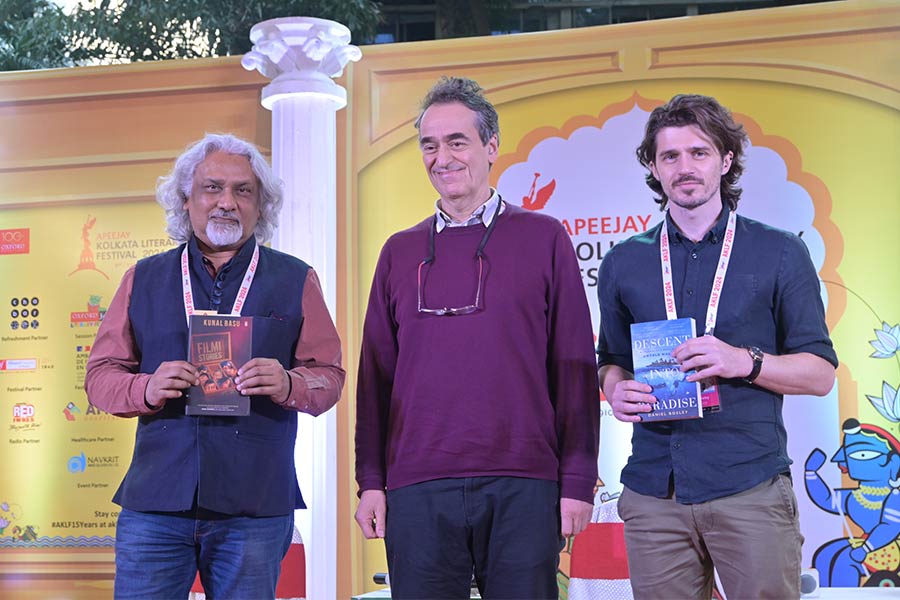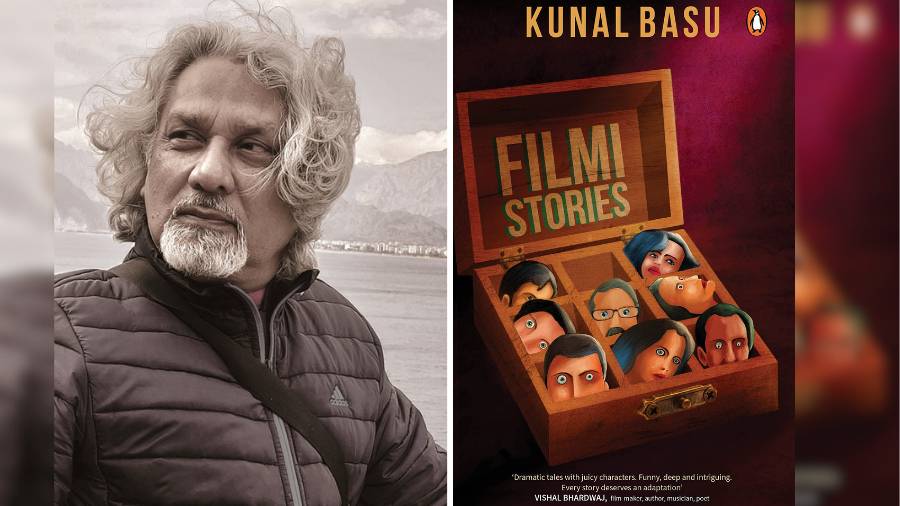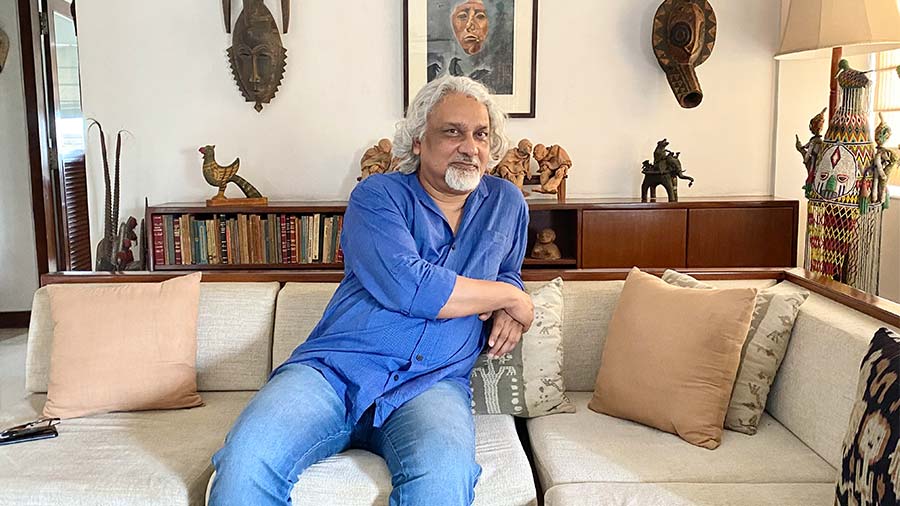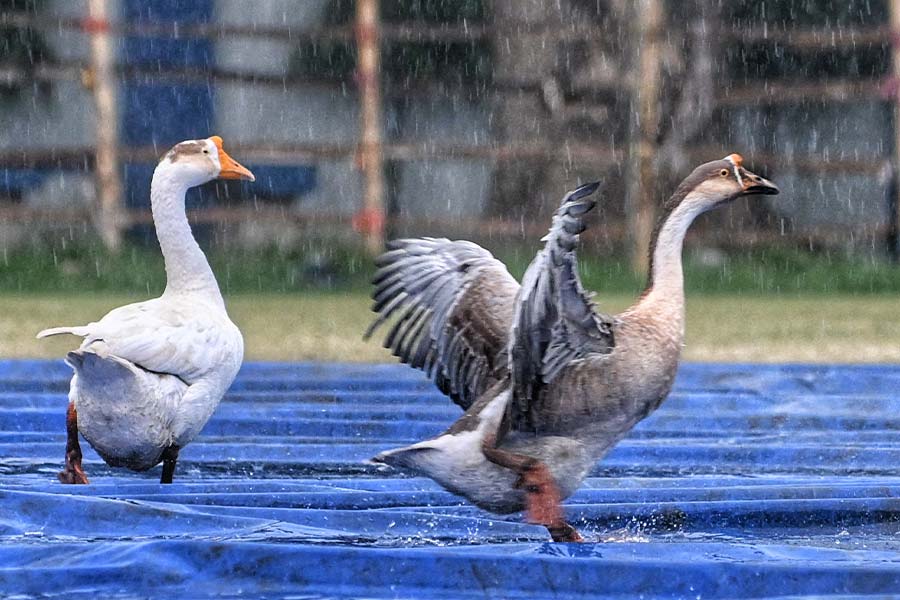What unites the Maldives and everyday Indian society? Stereotypes and a neglect of what lies beneath the surface. Or so argue Kunal Basu and Daniel Bosley, authors of Filmi Stories and Descent into Paradise, respectively. Both were present at the Apeejay Kolkata Literary Festival (AKLF) 2024 at Allen Park on a pleasant afternoon on February 9 to discuss their latest books and how they unravel what lurks underneath. Moderating the conversation was Sam Miller, a British journalist and novelist.
‘All my characters are people that any ordinary Indian would be familiar with’
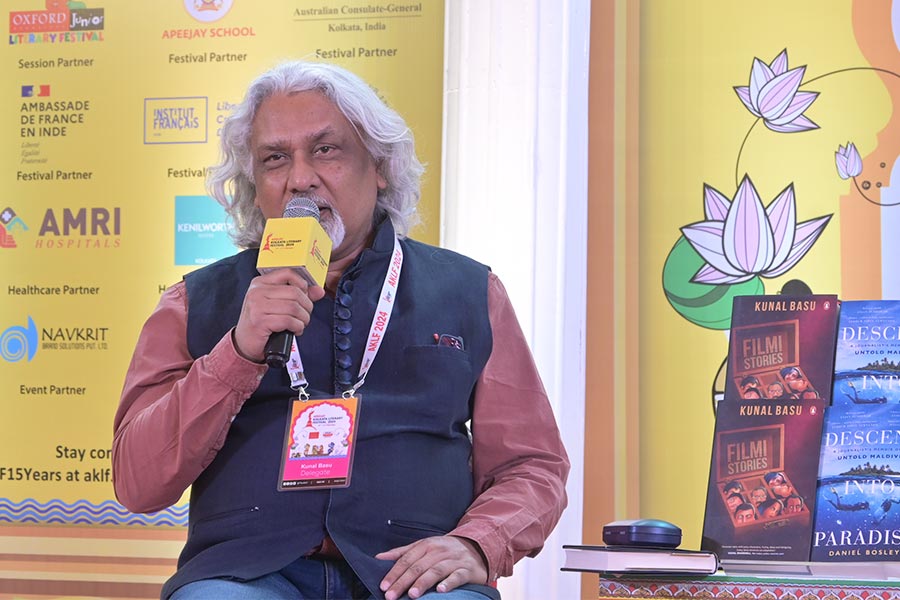
Basu’s ‘Filmi Stories’ captures the tales of ‘authentic’ Indians
The eponymous story from Basu’s first collection of short stories, The Japanese Wife, was adapted into a film of the same name by Aparna Sen. He admitted that there is no single, overarching theme behind his second collection, Filmi Stories. Apart from the fact that the stories had been written while at home during the pandemic. The ideas for the stories came from “the different scribbled pieces of paper” he had accumulated over the years in his desk drawer. The stories are set across diverse landscapes of India and their protagonists range from characters like a truck driver and a jailer to a struggling artist and a fugitive doctor working for Maoists. “What compelled me to write these stories is that they are stories about authentic people,” said Basu, before responding to Miller’s question about his choice of characters by saying that “all my characters are people that any ordinary Indian would be familiar with”.
Turning towards Bosley, the conversation shifted to the serio-comic tone of his novel about the political turmoil in Maldives, which is generally known as a tourist’s paradise. Bosley not only narrated the “extraordinary set of circumstances” that led to him ending up as a journalist in Maldives but also his intent to find out “what made the country tick”. Beyond the sinister politics and the fancy resorts, his book is a way of looking at Maldives’ 3,000-year-old culture. Bosley went on to read a section from his book rich with descriptions of local lands and people before highlighting how Maldivian culture is “increasingly threatened by rising sea levels in the ongoing climate crisis”.
‘The Maldives is a mix of very different cultures from across Asia and Europe because of its colonial past’
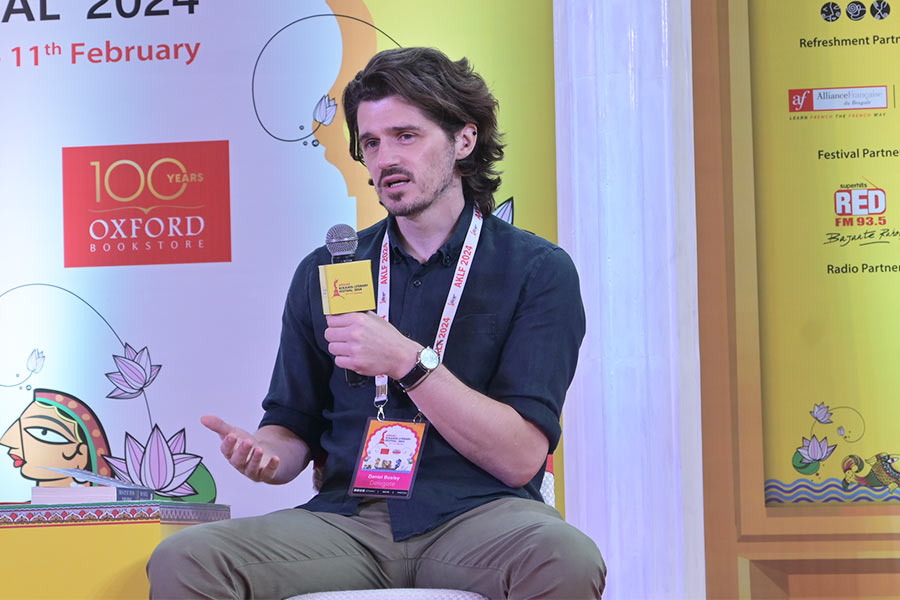
Bosley wants Maldivians to read his ‘Descent into Paradise’ to understand how a foreigner views their country
Bosley was then invited to voice his opinion on Maldives’ precarious diplomatic situation, where it is currently jostling between Indian and Chinese influence. He said that “this isn’t a completely new story for Maldives… It’s a country which is a mix of very different cultures from across Asia and Europe because of its colonial past”. Bosely added that his book was not meant only for an international audience, but that he wanted Maldivians to read his book to understand a foreigner’s perspective of their country. He also wanted them to know about the two murdered journalists (to whom this book is dedicated) whose murderers went unpunished.
Basu, for his part, read out his story, “OK Tata”, explaining how this story, too, had an innocuous origin. Basu would be awakened by the sound of trucks unloading at a construction site in the early hours of the morning and, from his balcony, observe the truck drivers who travelled all over the country. The drivers would always sit down for some tea after their job was done. Curious, Basu travelled to Dankuni for his research and befriended some truck drivers, eating and travelling with them. It gave him an opportunity to “enter a world I never would have seen otherwise”. He similarly spent a night in jail to get a feel for his story about a matchmaking jailer.
Basu proceeded to elaborate on the title of his stories. The stories are called ‘Filmi’ for their “imagery-driven, cinematic writing”. Basu wished to “bridge the gap between the two great siblings in art — literature and the audio-visual form”. He described authors like Charles Dickens and Bankim Chandra Chattopadhyay as “filmi writers” who could make a place come alive with the power of their imagination and set them as his standards for writing this book.
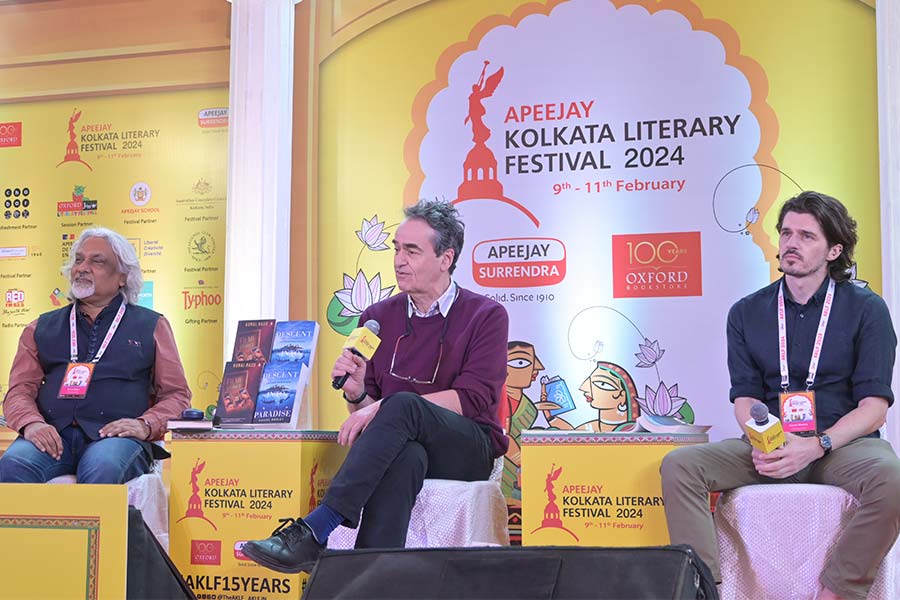
As moderator, Miller focused on how ‘some kind of darkness’ is common to the appeal of both books
As part of his concluding comments, Miller mentioned that although the two books had entirely different subjects, they shared “a certain grittiness and some kind of darkness that would make them very appealing to readers”. The audience then posed a few questions to Basu and Bosley, who fielded them with aplomb. The session drew to a close with an invitation to the authors to sign copies of their respective books for the audience.


